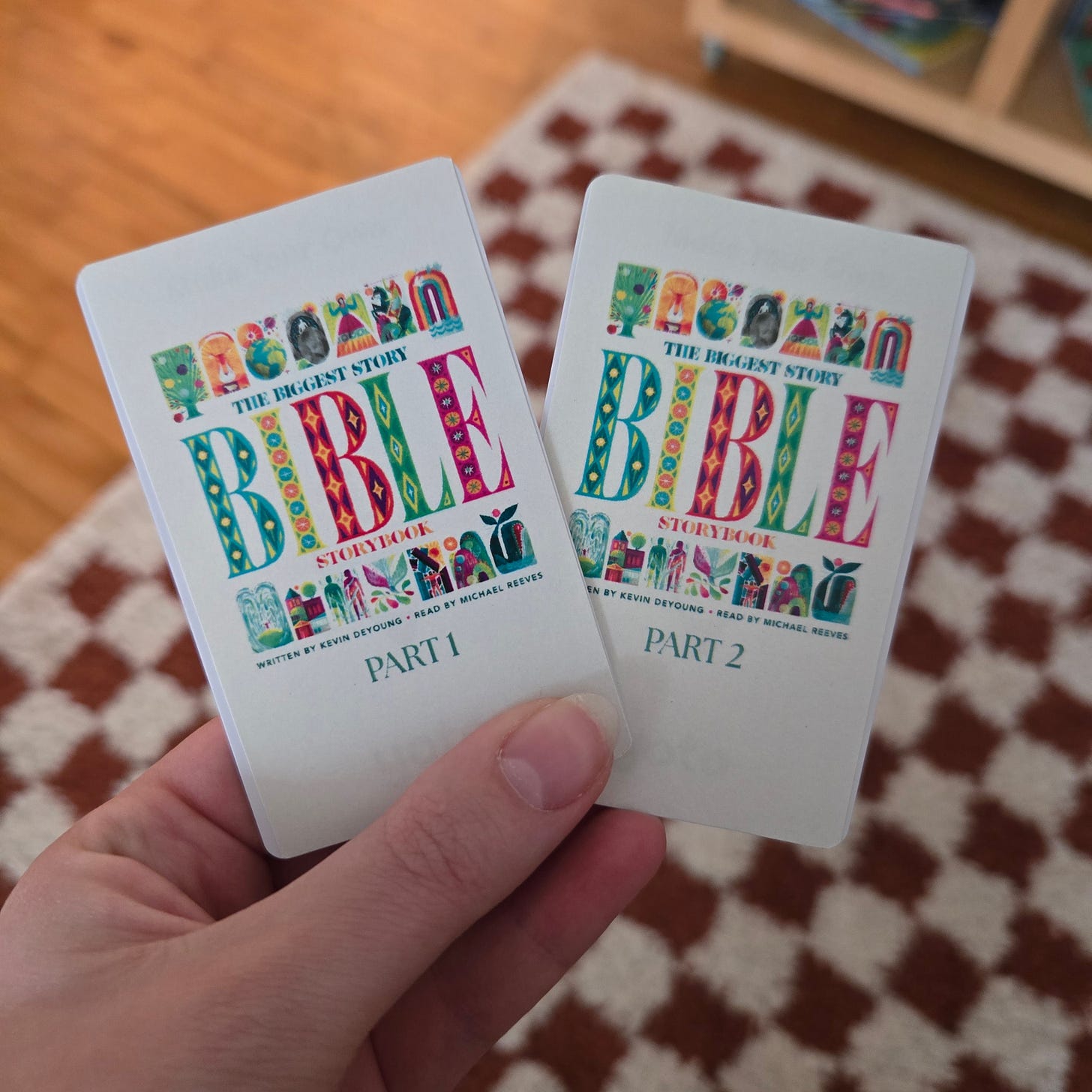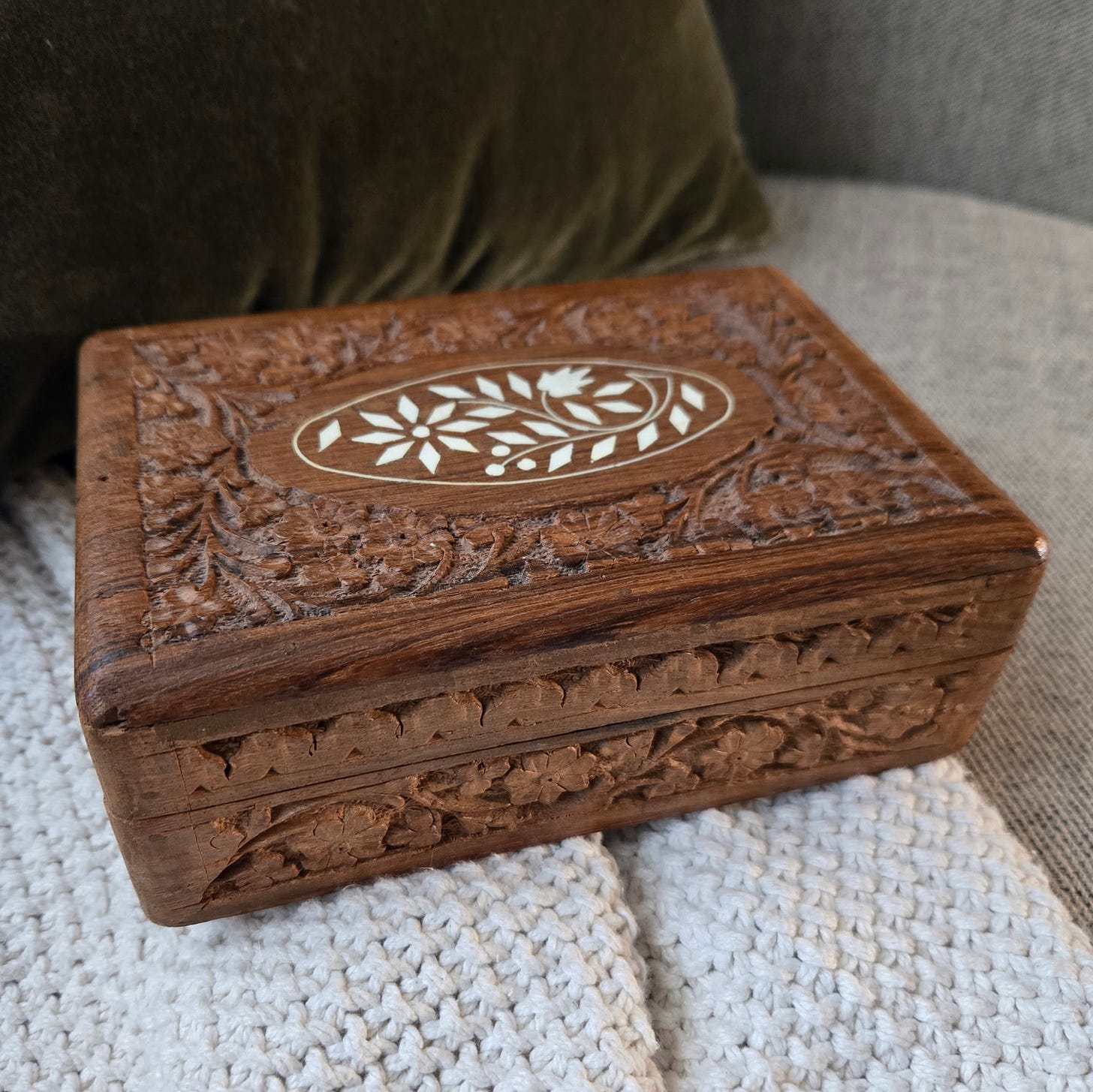Today I’ll be sharing some things I’m: thinking reading listening enjoying praying
Note: this “Thinking” portion comes from an article I wrote that was originally published by Journeywomen. I’m sharing here with some minor revisions.
Thinking
Over the course of twelve short weeks, I saw more facets to grief and loss than I ever thought I'd personally experience. My husband’s stroke followed by a cancer diagnosis ended with me holding his hand as I watched him take his last breath here on earth.
I learned a lot in the aftermath of my 26-year-old husband’s death. I learned that the human body could shed a lot of tears—more tears than I thought possible. I learned how deep our groaning for God can go. Oh, how my heart groaned. I learned how comforting the grace of lament was and how Scripture laid out a way to grieve and hope and worship when the tears seemed endless.
But lament didn’t always feel like the right thing to do, and some people with good intentions made comments that left me feeling like I needed to move faster on through and get to the “other side” of grieving.
Have you ever felt like it was wrong to be honest about your grief? Perhaps you’ve told yourself, “It could be worse” or “At least...” Maybe someone said something that made you feel that by crying too much or lingering too long in mourning you weren’t living in faith or hope. But platitudes, conciliations, or guilt don’t help us much to navigate grief.
It is painful to live in our cursed and broken world. This is not the pristine world God created. We were not meant to feel betrayal or disease. We were not meant to witness death or severed relationships. But we do. We live in the in-between—between Christ’s victory over death on the cross and when Christ will return and fix all the brokenness. While we wait, we face death, but we have access to rich grace in the face of death. We have lament.
Lament is Grace
Lament gives us a pathway to process and a framework to express what it feels like to live in a broken world in a way that leverages our hope (1 Thess. 4:13). It means that we need not pretend that death and loss don’t knock us to our knees. Instead, we can honestly describe the hurt and pain of brokenness. Sometimes that’s hard. Sometimes that feels wrong. But the psalmists show us that it is not wrong to go to God with our pain.
“Be gracious to me O LORD, for I am languishing.” (Psalm 6:2)
“I am weary with my moaning; every night I flood my bed with tears; I drench my couch with weeping. My eye wastes away because of my grief.” (Psalm 6:6-7a)
“How long, O LORD? Will you forget me forever? How long will you hide your face from me?” (Psalm 13:1)
“My God, my God, why have you forsaken me? Why are you so far from saving me, from the words of my groaning? O my God, I cry by day, but you do not answer, and by night, but I find no rest.” (Psalm 22:1-2)
Lament allows us to honestly tell God what it feels like to live in a broken world, but we don’t have to surrender to those feelings. We submit to the King of Kings, the Creator of all things, the firstborn from the dead (Col. 1). But we don’t have to pretend that death doesn’t feel absolutely crushing, and the grace of lament is that we are not alone in navigating life on this side of heaven.
Lament is Worship
Our crying does not diminish our confession. Lament is not a step before worship. True, biblical lament is worship.
Lament isn’t us wallowing to ourselves about our hurt. There is a direction and an orientation to our weeping when we lament. We cry out to God because of who he is, what he says, and what he does. In our lament, we appeal to his character, hoping in who he says he is. That is worship.
We cry to God because he made us, and he saved us (Colossians 1).
We cry to God because he always sees us and always hears us (Psalm 6:8-9, 22:23).
We cry to God because he always keeps his promises (Titus 1:2).
When we know these truths about God and respond in our pain by going to him with our hurt, that’s worship. When we go to him instead of relying on ourselves to get us through whatever it is we are facing, that’s worship.
Lament Helps us Hope
The seasons of lament are not seasons without hope. Biblical lament is grounded in hope! It's driven by hope. We need not hurry past the hurt to the more familiar worship. Worship is not just relegated to seasons of singing, but also the seasons of crying. Our lament in our pain is also our confession of our greatest hope, in the God of our salvation.
Lament is crawling on bloodied knees to the throne of grace, because although you can’t see through the storm of pain, you know that’s where mercy sits (Heb. 4:16). Your eyes are filled with tears, but you know the image of the cross, your deliverance, and that is your greatest hope (Col. 1:43-14).
Friend, whether tears are streaming down your face, or your heart is silently groaning, God hears your cry. He always hears your cry. And the cry of lament is a song of worship when we take all the pain we feel in this world and bring it before him, our God of all comfort (1 Cor. 1:3).
Reading
The Thrill of Orthodoxy by Trevin Wax
This was a book club book I read over the past few months with a small group of fellow faculty/staff women, and it prompted great discussion. It was unique to read this book at the same time I was reading Orthodoxy by G. K. Chesterton which Wax draws from significantly. If you’re looking for encouragement that the Christian faith is far from narrow and outdated, pick up this book.
Waiting Isn’t a Waste by Mark Vroegop
I appreciated Vroegop’s walking through how waiting is not only just part of the Christian life, but also how God uses it for our good. It was encouraging and convicting—particularly for me as I’ve learned how impatient I am through the delay of the publication of my book.
Listening
The Biggest Story Storybook Bible Audiobook
We really enjoy this storybook Bible, and when I saw that the audiobook version was available, I got it and put it on Yoto cards for my daughter. She’s already listened all the way through multiple times. It’s a great addition to our collection of classic and biblical stories that she listens to while she plays or falls asleep.
Enjoying
This thrifted jewelry box
The last time I had a jewelry box, it had a pirouetting ballerina. I thrifted this hand carved box several months ago for three dollars. I’m enjoying slowly decorating my home with beautiful, functional items that have a lot of character.
And also, these gold hoop earrings.
Praying
Gratefulness for spending a few days this week attending the TGC conference.
Thankfulness for the coming summer and (hopefully) warm sunshine ☀️
thanks for joining me here on the south porch
Alyson
Quick Note: Some of the links I share may be Amazon affiliate links, which means I earn a small commission if you purchase through them—at no extra cost to you. Please know that I am committed to only sharing links that I would share even without the affiliate link. Thanks for following along and letting me share my favorites with you!









Thank you for this!!! Beautiful post. Grief is so personal and bringing our hurts to God, big and small, is how true healing takes place. Indeed, this world is not how it was intended, and I appreciate the reminder of this oft-forgotten fact.